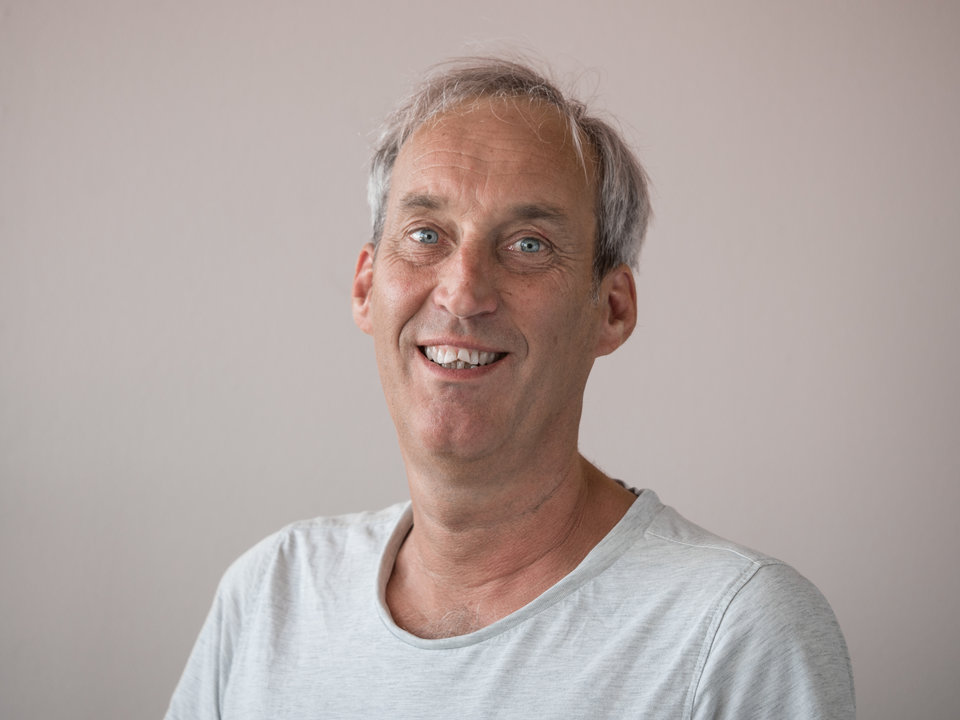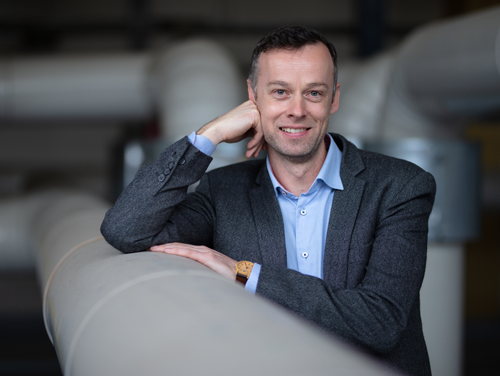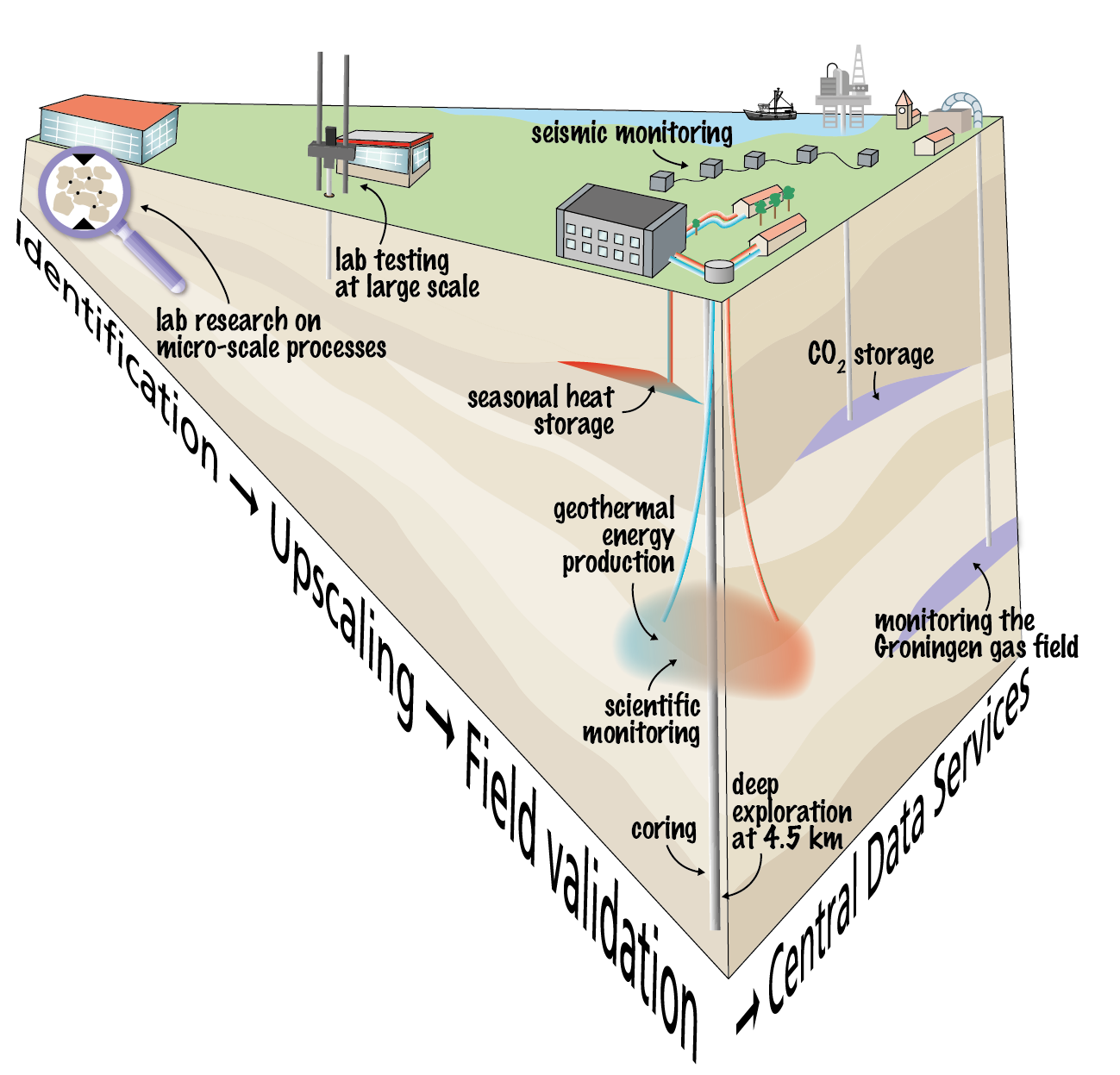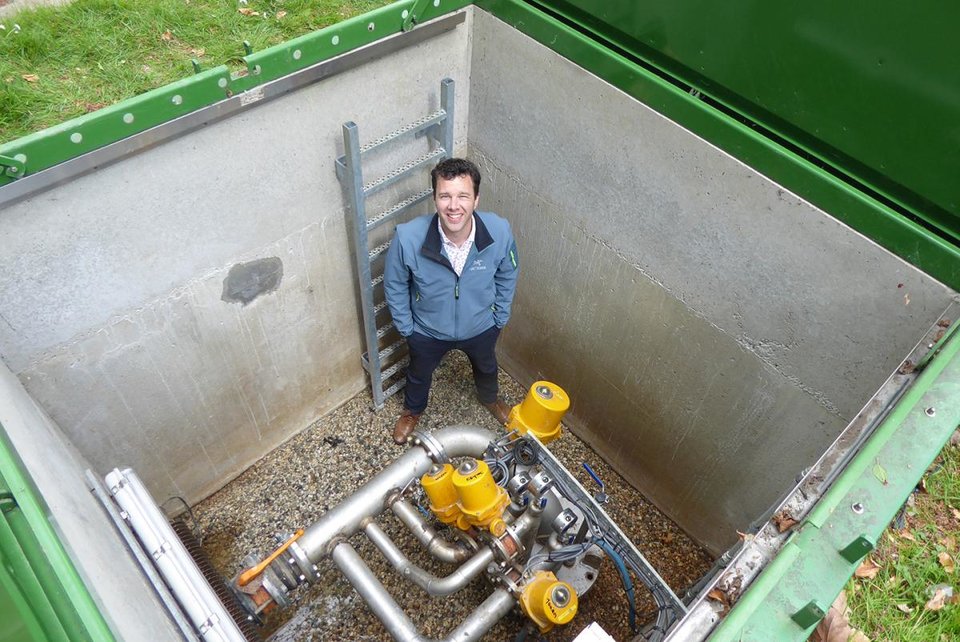€18 million for research on the sustainable use of our subsurface
Increased use of the subsurface, for example for geothermal energy production or subsurface storage, is crucial for achieving the (inter)national goals for greenhouse gas emissions. Today it was announced that EPOS-eNLarge, a research project that focuses on efficient and safe use of the Dutch subsurface, is one of the projects to be awarded through the Dutch Research Council (NWO) Large-scale Research Infrastructure call. The 10-year project will receive 17.9 million euros from NWO.
The project, a collaboration between Utrecht University, TU Delft, the Royal Dutch Meteorological Institute, and TNO Geological Survey of the Netherlands, aims to produce a physics-based understanding of the subsurface. It will provide the research capabilities to improve our understanding of micro-processes in the subsurface and how these control the large-scale behaviour during geo-energy production or fluid storage. One of the key goals is to increase efficient use of geothermal energy, ultimately accelerating the number of geothermal projects being deployed in the Netherlands.
Monitoring geothermal water flow
One of the unique measuring possibilities will be electromagnetic monitoring of the flow of hot and cold fluids in the subsurface. This will enable researchers to explore how geothermal water moves in the subsurface and flows through geological structures. It will lead towards knowledge on how geothermal energy can be efficiently extracted and how thermal energy storage can be designed efficiently. Evert Slob, professor Geophysical Electromagnetic Methods and TU Delft project leader: “This will provide essential knowledge on long- and short-term subsurface processes that underly efficient and safe operations and the impact on the environment.”
Subsurface urban energy lab
At TU Delft Campus, several projects will come together, with major spear-points being the high temperature heat storage system and the campus geothermal project, that is planned to be realised in the near future. Both combine real-world application and research. The research infrastructure funded in the EPOS-eNLarge project can further reveal the subsurface processes during the projects on campus in unprecedented detail. By forming a total combined facility, the research benefits from being both in a realistic setting and have a higher intensity of measurements. Therefore, it has a better chance of making a high impact.
Phil Vardon, professor Energy Geomechanics and TU Delft co-project leader, underlines the importance: “Geothermal technology is something that we need to be exploiting significantly more of as a country to ensure we meet our obligations as part of the energy transition. EPOS-eNLarge can provide the research infrastructure at Delft and other sites in The Netherlands so that we can get new insights on field-scale, which can be used to address key questions from society and industry.”
Open access to research data
In the future, the research infrastructure will be accessible for other researchers. The research project will also ensure that unique research data from the Dutch subsurface is openly available and centrally accessible through EPOS, the European research infrastructure for solid Earth sciences. EPOS-eNLarge builds on the research project EPOS-NL, which integrates large-scale geophysical facilities in the Netherlands into a coherent infrastructure for research into geo-societal challenges.
EPOS-eNLarge will clarify subsurface processes on several perspectives and at several locations in the Netherlands. The project includes a deep borehole to explore earth layers and explain the geothermal water flow, it includes monitoring systems to research seismic activity in parts of the Netherlands where gas extracting took place, and the project also includes large and micro-scale lab facilities to characterise (samples of) earth layers.
About NWO-LSRI
Large-scale Research Infrastructure (LRI) is essential for the position of Dutch science. For example highly specialized devices, such as large telescopes, high field magnets or advanced sensors and measuring networks necessary for biological and earth sciences research. But also for 'virtual' facilities, such as extensive databases, scientific computer networks, or for data and sample collections. "Investments in large-scale infrastructure contribute to the international position of the Netherlands as a knowledge country. Science and research cannot do without the right scientific infrastructure," says Minister Robbert Dijkgraaf.




